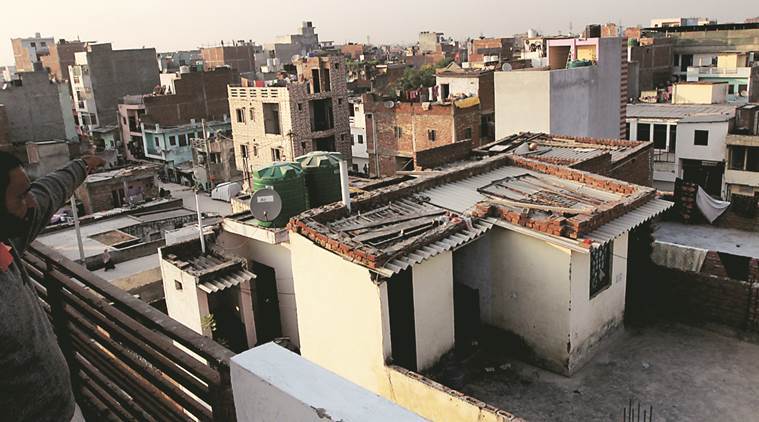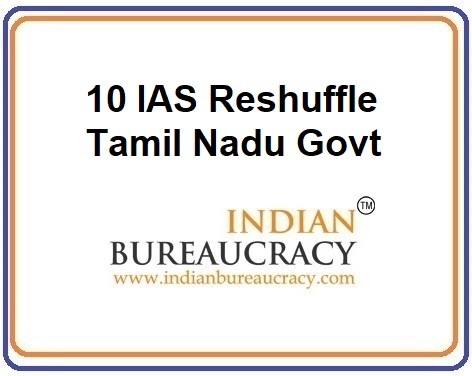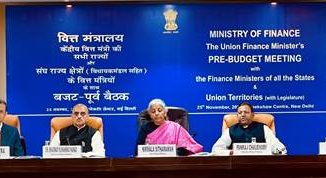
The Central Government is taking steps to confer ownership rights to the residents of unauthorised colonies (UCs) in Delhi. Even though redevelopment is allowed under the Master Plan, the same could not take place due to non-availability of ownership rights to the residents of these UCs. To address the problem, a Committee chaired by Lt. Governor of Delhi was constituted on 08.03.2019 with the approval of Union Cabinet, for recommending the process for recognizing ownership/transfer rights to the residents of UCs in Delhi. The Committee has submitted its report, based on which a draft cabinet note containing the proposal to confer ownership rights to residents of UCs has been circulated to all concerned for comments on 11.07.2019. The proposal will confer/ recognize ownership or mortgage / transfer rights to the residents of UCs which will facilitate development / redevelopment of UCs soon in a big way.
Draft Model Tenancy Act
As per census 2011, about 1.1 crore houses are lying vacant in the urban areas. In order to balance and protect the interests of landowner and tenant and to create an accountable and transparent environment for renting the premises in disciplined and efficient manner, a draft Model Tenancy Act has been circulated to the States/UTs soliciting their comments by 26.07.2019 and from all stakeholders including publicby 01.08.2019. Till date 56 comments/views/suggestions have been received from public. Majority of the comment received have welcomed new Model Tenancy Act and appreciated the government’s initiative. Various suggestions submitted by public include amount for the Security Deposit, specified notice period for vacating premise, special provisions for senior citizens and NRI landowners, digital platform to be established for submission of documents by tenant and landowners, issues related to pagadi system, etc. Further action will be taken after comments/ views of all stake holders are received and analyzed. Final draft model tenancy act, with the approval of Union Cabinet will be circulated to states soon. Further states will be pursued to legislate new tenancy law or amend the existing ones to align with provisions of Model Act as has been agreed to by them under an MOU signed from PMAY-U.
SBM-URBAN – Progress
· In sanitation,
o urban areas of 24 states / UTs have become ODF. In all, 4,265 cities have declared themselves ODF, of which 3,737 cities have been certified through third party verification. 64.5 lakh Individual Household Toilets (against Mission target of 66 lakhs) and5.5 lakh seats of community / public toilets (against Mission target of 5.08 lakh seats have been constructed / under construction;377 cities have been certified ODF+,and 167 cities have been certified ODF++. More than 45,000 Public toilets across 1,700 cities are now visible on google maps, covering more than 53% of India’s urban population.
· In Solid Waste Management:
o more than 91% of wards have door to door collection, 65% of wards are practicing source segregation and approx. 56% of the total waste generated is being processed. 3 cities are certified as 5-star garbage free, and 53 cities are certified as 3-star garbage free.
· Swachh Survevkshan
Swachh Survekshan 2016 was conducted among 73 cities with population of 10 lakh and above, and state / UT capitals of India. In 2017, the survey was conducted among 434 cities. Swachh Survekshan 2018 covered 4,203ULBs.Swachh Survekshan 2019 covered 4,237 cities.
100-day Action plan for SBM (U)
· Making 50 more cities each ODF+ &ODF++from current 377
Making 50more cities as ODF++ from current 167
Making 50 more cities 3-star Garbage Free from curent 53 cities.
Smart Cities Mission
More than 5000 projects worth over ₹ 2 lakh crore are at various stages of implementation as on 12th July, 2019. Currently, over 3,500 projects worth ₹1,35,000 crore have been tendered, over 2,800 projects worth ₹90,000 crore have been grounded for construction and over 900 projects worth ₹15,000 crore have been completed. Mission Cities have successfully expedited work on key projects which include: Integrated Command and Control Centres (ICCC) in 73 cities (operational in 16 cities); Smart Road projects in 72 cities (complete in 25); Smart Solar projects in 47 cities (complete in 15); Smart Water projects in 67 cities (complete in 24); Smart Waste Water projects in 58 cities (complete in 10) and Public Private Partnership projects in 62 cities (complete in 26 cities). The Mission is proving to be a game-changer in this regard. Not only is it directly improving citizens’ quality of life, it is also contributing to transforming the country into a digitally empowered society and a knowledge economy.
100-day Action plan for Smart City Mission(SCM)
One City One Impact is a 100 days programme of the Mission envisaged to encourage 100 smart cities to take up at least one impactful initiative which can be completed in 100 days and results in quantifiable and impactful outcome. Nearly 2.7 crore citizens are likely to be directly benefitted from this programme. The key targeted outcomes include plantation of more than 1 lakh trees, restoration/redevelopment of more than 100 public spaces, development of 80 smart classrooms, development of more than 100 public/community toilets, deployment of more than 2 lakh dustbins, installation of more than 1.25lakh LED street lights and construction of Municipal Solid Waste processing facilities of more than 200 TPD cumulative capacity. The Smart Cities Mission will complete an additional Rs 3,000 Crore worth of projects in the next 100 days.
DAY-NULM
During 2014-2019, more than 5 lakh skilled candidates have been provided placement under the Mission (as compared to 2.73 lakh during 2004-14) while more than 4.24 lakh beneficiaries have been assisted with setting up of individual/group micro enterprises. Around 4 lakh Self Help Groups have also been formed while more than 5 lakh bank linkages have been given to SHGs.
100-day Action plan for DAY-NULM
DAY-NULM SHG Pariwar consists of over 38 lakh urban poor households. Since the out of pocket expenditure on treatment of illness is one of the important determinants of urban poverty, an impactful intervention called Swasth SHG Pariwar has been initiated, which intends to link all eligible SHG women members with the Ayushman Bharat-Pradhan Mantri Jan Arogya Yojana (AB-PMJAY) and POSHAN scheme besides organising health check-up for all SHG members by 2nd October 2019 with the objective to substantially improve their access to quality healthcare in empanelled hospitals and improve their overall standard of living on a sustainable basis. Approximately, 11 lakh women are expected to be benefitted under AB-PMJAY scheme.
Atal Mission for Rejuvenation and Urban Transformation (AMRUT)
A total of 59 lakh household water tap connections have been provided against a target of 139 lakh connections. 37 lakh new sewer connections have been provided against a target of 145 lakh connections. 63 lakh street lights out of identified 98 lakh lights have been replaced with LED lights and Credit rating work has been completed in 468 cities. 163 cities have received Investible Grade Rating (IGR), including 36 cities with rating of A- or above.
₹181 crore have been released as incentive to 8 ULBs namely Ahmedabad, Amravati, Bhopal, Hyderabad, Indore, Pune, Surat and Visakhapatnam for raising funds through issuance of Municipal Bonds worth ₹3,390 crore last year.
Online Building Permission System (OBPS) has been implemented in 1,705 towns/cities including 439 AMRUT cities. OBPS in Delhi and Mumbai has been established with seamless integration of various internal and external agencies. As a result of implementation of several reforms, Country’s rank has improved from 181 in Doing Business Report (DBR) 2018 to 52 in DBR- 2019 in the construction permit indicator. Further, the implementation of OBPS is being extended to all cities in the Country. 11 States namely Andhra Pradesh, Delhi, Gujarat, Haryana, Himachal Pradesh, Jharkhand, Madhya Pradesh, Maharashtra, Punjab, Telangana and Tripura have implemented OBPS in all their ULBs.
Against the total State Annual Action Plan (SAAP) size of ₹77,640 crore, ₹39,011 crore (50%) has been allocated to water supply sector, ₹32,456 crore (42%) to sewerage &septage management sector, ₹2,969 crore (4%) for storm water drainage projects, ₹1,436 crore (2%) for non-motorized urban transport and ₹1,768 crore (2%) for green spaces & parks. Detailed Project Reports (DPRs) have been approved for projects worth ₹80,428 crore, of which contracts have been awarded and works grounded for projects worth ₹ 65,811 crore including completed projects worth ₹ 4,271 crore. Total amount of ₹ 20,971 crore has been released as Central Assistance (CA).
100-day Action plan for AMRUT
JAL SHAKTI ABHIYAN
Jal Shakti Abhiyan (JSA) promoting water conservation works viz rain water harvesting, recycle/reuse of treated water, rejuvenation of water bodies, plantation of trees is taking place at large scale in754 cities. The campaign for water conservation, launched by the Ministry of Jal Shakti on 1st July 2019, will be carried out in 2 phases. (Phase I: 1 July 2019 – 15 September 2019 and Phase II: 2 October 2019- 30 November 2019).
Ministry of Housing and Urban Affairs (MoHUA) has identified 754 water stressed ULBs across the country for targeted interventions in water conservation measures viz. Rain Water Harvesting (RWH), Reuse of Treated Waste Water, Rejuvenation of Water Bodies and Plantation. Detailed Guidelines were issued by the Ministry on 29th June, 2019.
All identified ULBs have started undertaking various activities to promote water conservation in order to achieve transformation of Jan Shakti to Jal Shakti.
PMAY(U)
About 84 lakh houses out of likely validated demand of about 1crore houses have been sanctioned so far. More than 50 lakh houses have been grounded for construction of which 27 lakh houses have been completed and occupied. For construction of these sanctioned houses, an investment of Rs. 5 lakh crore including central assistance of Rs. 1.3 lakh crore has been approved. So far Rs. 51,500 crore of central assistance has been released. A total of 6.5 lakh beneficiaries including 2 lakh beneficiaries of MIG have availed interest subsidy of about Rs 15,000 crore.
Over 300 crore person days of employment has been generated under PMAY (U) which includes 100 crore person days of direct employment and 200 crore person days of indirect employment.Schedule of Rates (SoRs) have been issued for 16 new emerging technologies to fast track construction of houses. Around 13 Lakh houses across all over India are being constructed by using new technologies.Under CITI-2019, 72 Potential Future technologies (domestic) have been identified through the challenge which will be shortlisted for providing Acceleration and Incubation support. Further, 6 Light House Projects in Rajkot,Ranchi, Indore, Chennai, Agartala, & Lucknow will be grounded by early October 2019 for construction using different innovative technologies.
100-day Action plan for PMAY
Launch of a Campaign namely Angikaar for PMAY (U) beneficiaries sensitizing them to embrace change and adapt to the new environment: The campaign would include issues pertaining to cohesive community living, water and energy conservation, sustainable practices, rain water harvesting, tree plantation and convergence of different government programmes/schemes leading to clean, green and safe living environment.Various IEC activities for the campaign are being prepared for proposed launch in the first week of August, 2019.While completion of 3 Lakh housesto beneficiaries has been planned, so far over 1 lakh houses have been completed and almost all of them delivered.
Ground-breaking of Light House Projects conceived under Global Housing Technology Challenge-2019 to demonstrate best global housing construction technologies identified during Construction Technology India (CTI)-2019 held on 2-3rd March 2019. Construction of over 6000 units of houses using six distinct alternate technologies is planned in six States (Madhya Pradesh, Uttar Pradesh, Tamil Nadu, Jharkhand, Tripura, Gujarat) as a part of Construction Technology Year.
100-day Action plan for Govt colonies
Introduction of sustainable sanitation practices, greening vacant areas, creating rainwater-harvesting structures and fire resilience in 100 government colonies across the country has been taken up.
Digitization in M/o HUA
Near 100% digitization of Government transactions involving both payments and receipts of our Ministry has been achieved. Annual payment of around Rs. 63,000 crores released directly by this Ministry are already digitized through web based Public Financial Management System (PFMS). Complete digitisation of govt transaction in Ministry and all its field offices (more than 400) has improved the efficiency and timeliness of payments, enabled real time monitoring of utilisation of funds and also strengthened the transparency and accountability in public expenditure.
100-day Action plan
The roll-out of Expenditure Advance Transfer (EAT) module of PFMS for 100 Smart Cities is being taken up so that 100% digitization of payments is ensured in all cities covered under Smart City Mission. Digitisation of Smart Cities will not only digitise the payment transactions, but also enable real-time monitoring and tracking of utilisation of funds (both Central and State share) till the last level of implementation.
Metro Rail
Development of Metro Rail:
Till May, 2014, about 247 km of metro rail was operational in seven cities (Kolkata,Delhi, Ghaziabad, Noida, Gurugram, Bengaluru and Mumbai) in the country.Now, 657 km of metro rail is operational in 18 cities namely Delhi, Noida, Greater Noida, Ghaziabad, Gurugram, Faridabad, Ballabhgarh, Bahadurgarh, Jaipur, Lucknow, Kolkata, Ahmedabad, Mumbai, Nagpur, Hyderabad, Bengaluru, Chennai and Kochi. About 900 km of new metro rail/Regional Rapid Transit System (RRTS) is under construction in 27 cities.
100 days action plan:
Standards for Light Urban Rail Transit system called “Metrolite” has been issued by the Ministry on 15.07.2019. This is suitable for cities with maximum 15000 passenger movement per hour per direction which suit most of the cities. State Governments have been requested to adopt Metrolite as a prime mode of mass transit in smaller cities. Cost of its construction is much less than (about 50% of elevated and 20% of underground) of high capacity metro system. This system is most viable and sustainable due to its very less capital and operation and maintenance cost.
Three metro lines (21 km) have been targeted for commissioning in next 100 days as below:
5.6 km, Maharaja College to Thykodam, Kochi Metro
4.3 km, Dwarka to Najafgarh, Delhi Metro
11 km, Lokmanya Nagar to Sitabuldi, Nagpur Metro.







Leave a Reply
You must be logged in to post a comment.